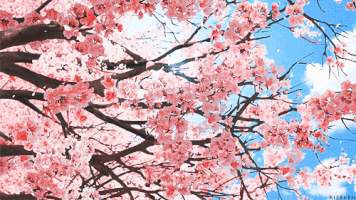How to Choose a Genre for Your Book

So, you’ve written a novel. And survived to share the news! Congratulations! What next? Are you hoping to share it with others? Okay, go for it — self-publish or put it on Wattpad or something. Now, here’s the really hard part after writing and editing — marketing.
What’s the hardest part of marketing? “Tell me what your book is about.”
Many indie authors I see around the blogisphere have compared writing a summary of their novel/series with being tortured, suffering through a prolonged illness, or feeling that their very soul has been ripped out and displayed to the whole world.
In other words — it seems so easy (to the naive general public), but deciding what your novel is “about” can be almost impossible.
Here’s a major reason why — selecting the genre it belongs to. Genres are something apparently contrived by publishers to torture writers. “Genre” means a category. Humans love to put things in categories. But writers find “genre” a bit tedious, because, honestly, really good stories don’t follow a checklist of standards; they cross borders and fall into more than one genre. We often don’t like feeling limited by sticking to the expectations of a category.

So, here’s how to decide which genres your novel falls into:
Consider the major elements of the story. Is the focus of the plot on solving a crime? (mystery) Is it set in outerspace? (science fiction) Does your world include inhabitants such as dragons, mages, and talking horses? (fantasy)
But do think about things like setting and premise as well — Is your sci-fi novel actually set in Victorian London? (historical fiction and steampunk) Are your characters solving a who-done-it they stumbled over on their honeymoon? (romance) Has your Narnia-inspired Earth actually come to be after a post-armageddon event circa 2234? (dystopia)
Don’t worry one bit about writing in more than one genre. Nowadays, readers are hungry for less-formulaic fiction, and the industry is catching on. On Goodreads, my first publication is listed under fantasy, YA, and contemporary, because yes, it’s about faeries and mythology, but it’s set in present day, and the target audience is ages 13 and up. You’ll actually reach more potential readers by writing a historical fiction murder mystery, or a dystopian romance.
Above all, stay true to the voice of your story. This is the most helpful “professional” advice I’ve received on writing. Stop worrying about what your novel “should” be in terms of trends or what your favorite authors are currently producing. Concentrate on the story you’re telling. If you just know it has to be a contemporary, or has to be fantasy, to properly explore the growth of the characters and who they’re meant to become, then stick to it.

How to determine the age classification. This simply means, who’s it for? Is the intended reader an adult, a teenager, or a kid? And how you reach this conclusion should not be based on the age of the narrator or the protagonist. For example, The Book Thief and The Hunger Games are labeled juvenile fiction, purely because the narrators are very young, but the content and the subjects within those pages are very, very serious and not easy for juvenile minds to comprehend. It may actually be harmful for people under the age of 16 to read such books. The same with the Throne of Glass series, which you’ll find on sale or in the library next to Harry Potter and Percy Jackson, but has explicit sexual references.
(Go back to step one: Staying true to the voice of your story.)
As a parent, I really wanted to write something that I’d feel comfortable having my own kids read — now, not when they’re adults. For a few years, I toyed with the idea of making my series NA (new adult, ages 18 and up), but eventually I decided to make it YA (and a solid YA, acceptable for middle-schoolers to read). But there’s plenty for older teens and even adults to enjoy. My content is pretty conservative, so for adults who don’t care for tons of violence or sex or swearing in their fiction (like myself), there’s still adventure and mystery and some romance and clean humor. Although The Order of the Twelve Tribes can be found under YA, it still works for a broad audience.
Hope all of this helps our future bestselling authors! Happy writing!



Daley Downing's Blog
- Daley Downing's profile
- 36 followers



